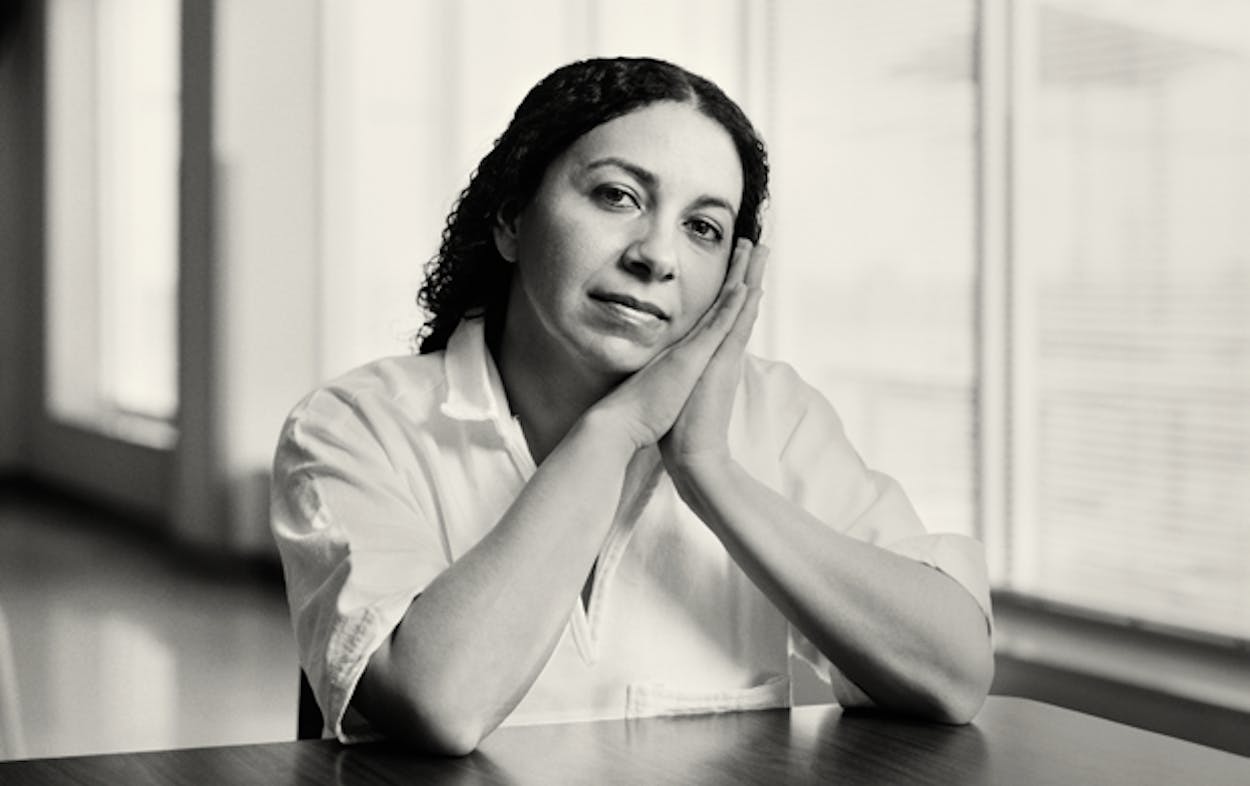In January, executive editor Pamela Colloff wrote about the Hannah Overton case. Here’s an update to her story.
For anyone who has followed the bewildering path that Hannah Overton’s case has taken since she was charged with capital murder in 2006, yesterday was a monumental day. The Texas Court of Criminal Appeals—which has historically shown little interest in siding with defendants who say they were wrongly convicted—ordered the trial court in Hannah’s case to examine her claims of actual innocence.
A Corpus Christi homemaker and mother of five, Hannah was arrested after Andrew Burd—a four-year-old foster child whom she and her husband were in the process of adopting—mysteriously died of a rare case of “salt poisoning.” Hannah, who had no history with CPS, no previous arrests, and no history of violence, was charged with capital murder. Prosecutors painted a macabre portrait, arguing that she snapped under the demands of parenting and forced Andrew to eat 23 teaspoons of salt. After a sensational trial, she was convicted and sentenced to life in prison without the possibility of parole.
In my story I explored the many inconsistencies in the state’s case. Prosecutors had never been able to explain, for example, how Hannah—who was six months pregnant and recovering from whiplash at the time of Andrew’s death—had managed to overpower him and force him to eat a large quantity of salt. They had also discounted evidence suggesting that Andrew had an undiagnosed eating disorder called “pica,” which is characterized by a desire to consume inappropriate things, like salt. And they were never able to establish a plausible motive.
Until yesterday, the appellate courts had declined to act. (The case first came before the Court of Criminal Appeals in 2009, after Hannah’s conviction was affirmed by a lower court, but the CCA took no action at the time.) In a last-ditch effort to find any evidence that might help Hannah appeal her conviction, her appellate attorney, Cynthia Orr of San Antonio’s Goldstein, Goldstein & Hilley—whose work with the Innocence Project recently helped exonerate Michael Morton, a Williamson County man wrongly convicted of his wife’s 1986 murder—undertook an exhaustive investigation of the case in 2010.
Orr uncovered key records documenting the sodium level in Andrew’s gastric contents, which provided powerful new evidence that Hannah could not have poisoned Andrew. Orr wrote a writ of habeas corpus, describing the new evidence and its significance, and filed it with the trial court where Hannah had been convicted. Remarkably, Nueces County district judge Jose Longoria, who had presided over Hannah’s trial, dismissed the writ on April 7, 2011—the very same day that it was filed.
Orr appealed that decision to the CCA, and in a rare written statement that accompanied yesterday’s court ruling, Judge Cathy Cochran directed the trial court (that is, Judge Longoria) to resolve several specific questions regarding scientific evidence in the case, stressing the importance of doing so:
The judiciary must be ever vigilant to ensure that verdicts in criminal cases are based solely upon reliable, relevant scientific evidence—scientific evidence that will hold up under later scrutiny.
Judge Cochran went on to quote an opinion she had penned in a recent case:
The potential problem of relying on today’s science in a criminal trial…is that tomorrow’s science sometimes changes and, based upon that changed science, the former verdict may look inaccurate, if not downright ludicrous. But the convicted person is still imprisoned. Given the facts viewed in the fullness of time, today’s public may reasonably perceive the criminal justice system is sometimes unjust and inaccurate. Finality of judgment is essential in criminal cases, but so is accuracy of the result—an accurate result that will stand the test of time and changes in scientific knowledge.
The statement comes in the wake of a number of high-profile DNA exonerations and reflects the court’s growing unease with the capriciousness of scientific evidence in the courtroom.
It also shows an evolution in Cochran’s thinking. Her 2002 ruling in the case of former death row inmate Anthony Graves—who was released in 2010 after eighteen years behind bars for a crime he did not commit—set Graves’s appeals back years. In the Graves case, Cochran ruled that a defendant was entitled to a qualified court-appointed attorney, but not necessarily to one who performed well.
Clearly, Cochran is deeply troubled by circumstantial cases like Hannah’s that may rest on flawed science. At the end of her statement, she cautioned that the stakes were high in such cases:
Public support of the American criminal justice system depends upon its confidence that the courts reach accurate verdicts based on reliable scientific evidence.
The CCA’s ruling requires that the trial court hold an evidentiary hearing within the next ninety days. So what, exactly, will happen? According to Orr:
Expect to see a date set for a hearing, and expect to see Hannah returned to Corpus Christi [from prison in Gatesville] to attend that hearing. Expect to see us put on witnesses and evidence so that we can establish, through accurate science, what really occurred in this case. At the end of that hearing, I expect that Hannah will be vindicated and returned to her husband and children.







